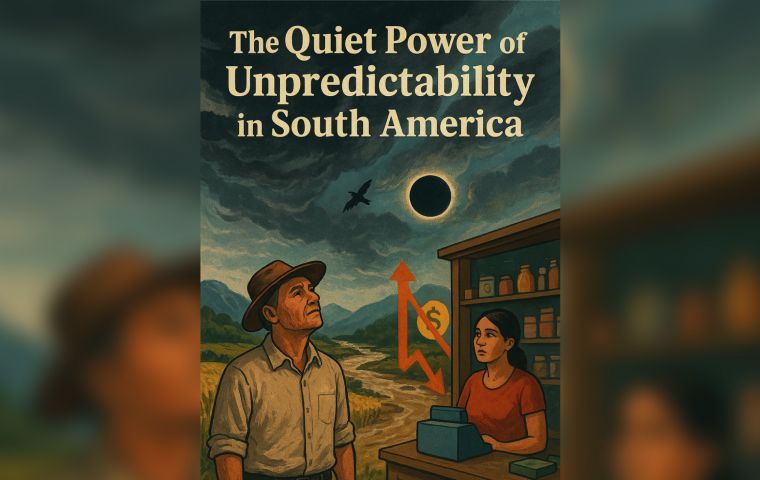MercoPress. South Atlantic News Agency
The Quiet Power of Unpredictability in South America
 South America holds a lesson that goes beyond its borders
South America holds a lesson that goes beyond its borders If you live in South America, you know that you can't be sure of anything. Living here has its own beat. It may be rough and crazy, but it never is boring. As you grow up, you know tomorrow can be very different from today. You could lose everything you have in weeks due to inflation, acquire a new president overnight, or see a flood cover up a whole valley. It does wear you out, but it also makes you tougher in a way that seems to be odd in this part of the world.
That unpredictability changes the way people look at life. A farmer in Uruguay, staring at the sky while storm clouds gather, knows his harvest is out of his control. A shopkeeper in Buenos Aires can see her daily earnings vanish with a sudden currency swing. Yet luck, too, arrives out of nowhere—through a new export deal, an unexpected partnership, or sometimes in smaller metaphors: the spin of a wheel or the draw of a card. Even something as seemingly trivial as casino extreme 1000 free spins carries the same reminder—that a single twist of fate can redirect the path you’re on.
History here follows the same pattern. Argentina’s endless battles with inflation, Brazil’s roller-coaster cycles of boom and bust, Peru’s dizzying changes in leadership—stability is never permanent. At best, it’s borrowed time. And still, people endure. They adapt, often faster than anywhere else, because survival demands it.
You can hear it in the music. Tango is longing and defiance. Samba won't surrender its glow, no matter what fight. Cumbia holds onto its driving rhythm, a heartbeat that won't stop. And on the page, Borges and García Márquez weave uncertainty into magic, bending reality into something novel and foreign and familiar. These novels are not art—they're echoes of a continent that has perfected turning chaos into meaning.
Even the clouds appear to be talking the same story. Few things are as humble-inducing as an eclipse. The sun is out one moment and the world is cast into a weird shadow and the birds grow quiet. Science can forecast it to the second, but the experience is still disquieting. Some believe that an eclipse could change your life dramatically. Whether you believe that or not, the concept is there—the vast majority of us have had our lives altered in the blink of an eye, as if by something beyond ourselves.
In this way, South America holds a lesson that goes beyond its borders. The point isn’t that chaos always wins, but that unpredictability will always be beside us. Governments may try to control it with new policies, families with tradition, artists with creation. Yet it never disappears. It remains—steady as the mountains, restless as the sea.
And perhaps that’s why the people here carry such a quiet, enduring strength. They don’t wait for stability, because stability is rarely offered. They walk the winding roads, they rebuild when things fall apart, they dance even when times are hard. They tell stories, they endure.
The paradox is clear: what makes life fragile here is also what makes it vivid. Unpredictability isn’t a flaw in the design—it is the design. To live in South America is to feel this truth deep in your bones. And once you carry it with you, the world itself comes into sharper focus, alive with possibility.




Top Comments
Disclaimer & comment rulesCommenting for this story is now closed.
If you have a Facebook account, become a fan and comment on our Facebook Page!